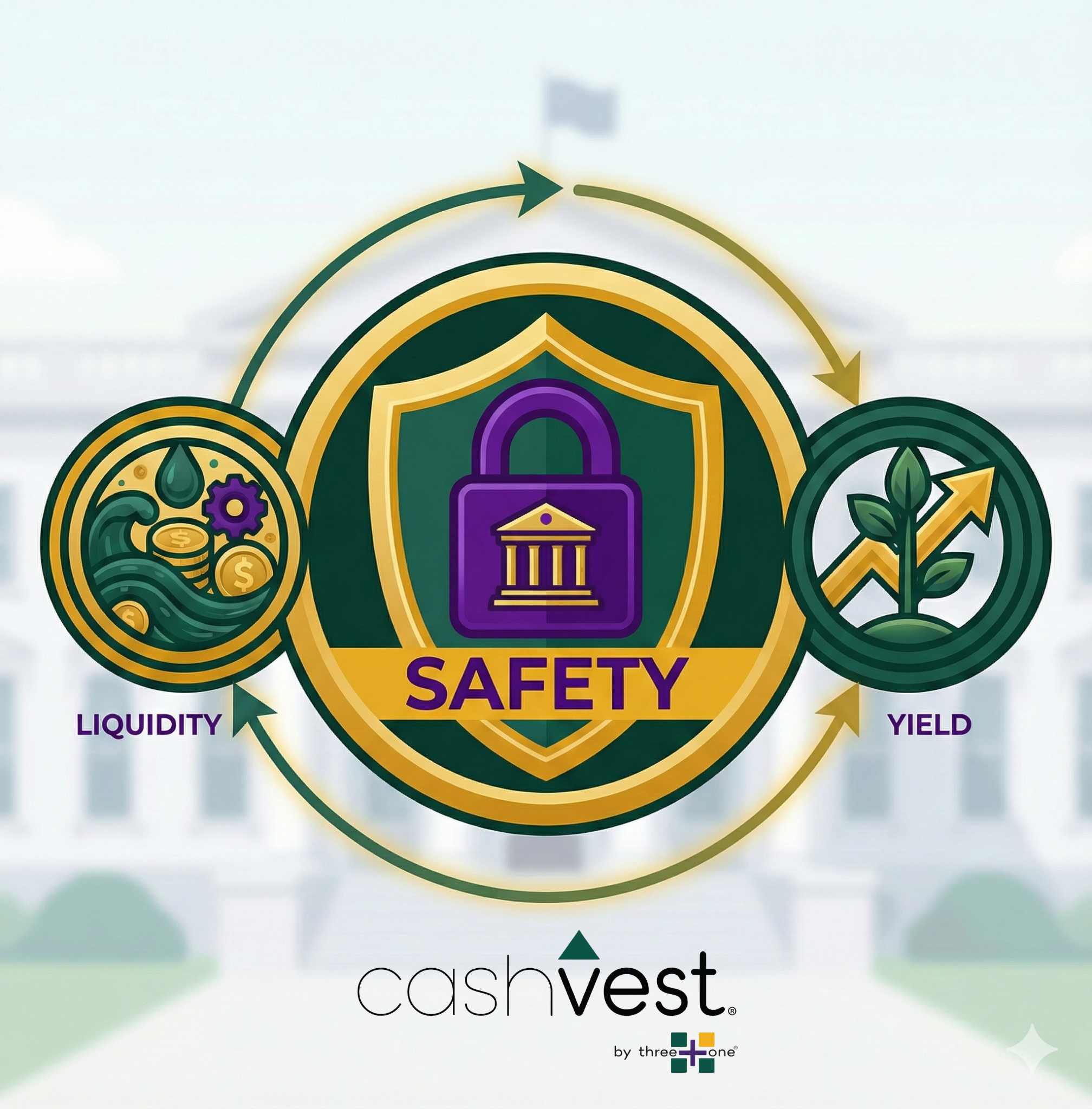
The answer is not a firm “yes” or “no,” but rather “it depends.”
First, let me qualify by stating that most banking institutions consider public deposits to be not just a community obligation but also a challenge, due to collateral and legal requirements. Two factors can make such deposits appeal to a bank: longevity and predictability.
As three+one people talk to bank executives around the country, we hear that most of the larger banks are boosting up their balance sheets and are looking to pay up for public deposits. However, they are also looking for general operating accounts or other banking business to justify taking on these deposits. Clearly there are no large banks that are looking for “hot” money.

Right now, smaller community banks are more interested in just boosting their operating money. They don’t want to get caught in an“inverted” yield curve where short-term rates are rising and longer-term rates fail to keep pace. It such cases, public deposits become a losing proposition.
So what options does a public entity have? Consider these tips:
1.) The days of bidding hot money is over. Pick a bank and build a strong relationship with them. The stronger the relationship, the more your bank will respond to keep—and grow—your business. Having multiple bank relationships and accounts stand to work against you, not for you.
2.) Look outside making just bank deposits. Options such as U.S. Treasuries and other public short-term paper may work better, depending on their credit rating.
3.) If available, look into your state’s liquidity pool. Make sure you know all the requirements of the pool’s rates and the ease and ability to access your funds.
4.) Explore any government money market funds with a constant Net Asset Value (NAV). These must be allowed in your state and meet local investment guidelines. Such funds are starting to look extremely appealing in a rising rate environment.
5.) Consider a separately managed account through a Registered Investment Advisor (RIA). Where permitted and with the correct liquidity data, an RIA can manage your short/long-term cash, capture higher yields, and meet all your legal, liquidity, and safety requirements.
Cash is an asset that has a lot of value in today’s markets—and that’s likely to rise. Banks may be specific in what they want and don’t want, but you do have options.
At three+one, we can help you right from the start. Through our proprietary cashVest® liquidity analysis and quarterly data feed, we can pinpoint your exact liquidity needs and provide the assurance that you are making the highest income while maintaining all the necessary requirements.
Your deposits do have value and are wanted; you just need to know where to put them.


